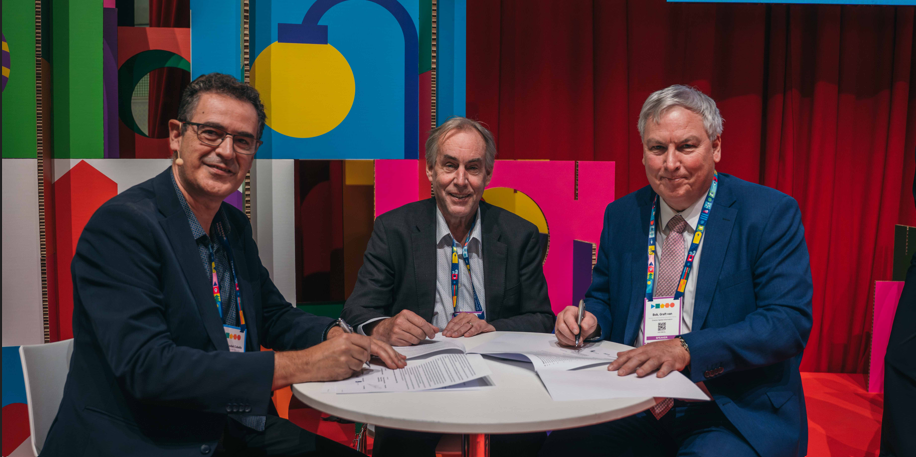Jan Wester of the Netherlands has been appointed director of the European Digital Infrastructure Consortium for the Network of Local Digital Twins (LDT EDIC CitiVERSE). The secondment agreement for this is to be signed at the Smart City Expo World Congress. The EDIC is a partnership of 14 European countries. Together they will be working on a digital infrastructure for scalable applications of digital twins: digital (predictive) 3D representations of the physical living environment.
Wester will serve in the role of seconded director for the next three years. He will do so representing the Dutch Ministry of Housing and Spatial Planning (VRO) and, together with an extensive European team, will further shape this in the coming months. The agreement was signed by Ernesto Faubell Cubells on behalf of the EDIC Assembly and Bob van Graft, Director of Spatial Information (Ministry of VRO), on behalf of the Netherlands during Smart City Expo.
The EDIC builds on the results of various European initiatives, which will be made available as a priority in a diverse portfolio of products, services, and facilities. These include test and experimentation facilities (CitCom TEF), computing power (AI factories), the LDT toolbox, as well as training and a helpdesk for public procurement.
From isolated pilots to a single European infrastructure
Within the LDT CitiVERSE EDIC, the priority is to have local digital twins interoperate across borders. By building a network of local digital twins, EU countries can develop, exchange, and reuse digital twin modules more efficiently to support societal challenges—such as climate adaptation, housing, and mobility—more quickly and reliably. This will create a futureproof digital infrastructure that safeguards European values, strengthens digital autonomy, improves public services, and stimulates market innovation.
Jan Wester, Director, LDT CitiVERSE EDIC: “A healthy perspective on scale and immediate deployability is the key to success. Scaling requires collaboration and real-world validation. The EDIC’s interoperable products, services, and facilities provide a solid foundation for a thriving public-private ecosystem of applications. Digital twins, for example, must be immediately usable for professionals working on spatial challenges interoperable, reusable, and scalable at the European level.”
